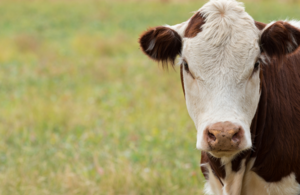Government sets out next phase of strategy to combat bovine tuberculosis in England
New measures to eradicate bovine tuberculosis (bTB) in England by 2038 announced

A photo of a cow in a field
- Work on badger vaccination, increased cattle testing and development of cattle vaccine to be accelerated
- Licensing of new intensive culls set to end after 2022 following a significant reduction in the disease
- New schemes launched to roll out badger vaccination across the country
Work to develop a vaccine for cattle and to vaccinate badgers is underway as new measures to eradicate bovine tuberculosis (bTB) in England by 2038 have been announced by the Environment Secretary George Eustice.
A five-year badger vaccination programme in East Sussex has been awarded £2.27 million to enable farmers to deploy vaccinations over an area of 250 square kilometres. The results of this trial will help inform the government on how to deploy future vaccination schemes at scale across England, halting the culling of this protected species.
The licensing of new intensive badger culls, which have effectively helped reduce bTB rates by half in certain areas, will cease after 2022.
In addition, existing cull licenses could be cut short after two years, down from five years, where supported by sufficient scientific evidence, and there will be no option for them to be renewed. The Government will develop a monitoring system to track the badger population and disease levels to help tackle the disease, with the findings being routinely published on gov.uk.
Last year, the Government announced that bTB cattle vaccination trials in England and Wales had been given the green light, as a result of ground-breaking research by government scientists. These trials are expected to commence in June and, if successful, the project will remain on track to enable the deployment of a cattle bTB vaccine by 2025.
Environment Secretary George Eustice said:
Bovine TB is one of the most difficult and intractable animal health challenges that the UK faces today, causing considerable trauma for farmers and costing taxpayers over £100 million every year.
The badger cull has led to a significant reduction in the disease but no one wants to continue the cull of a protected species indefinitely. That is why we are now building on this progress by accelerating other elements of our strategy, including cattle vaccination and improved testing so that we can eradicate this insidious disease and start to phase out badger culling as soon as possible.
The announcement follows an eight-week consultation launched in January, which sought the public’s views on a range of proposals in response to an independent review of its 25 year bTB strategy, led by Professor Sir Charles Godfray.
Bovine TB is one of the most difficult and intractable animal health challenges that England faces. In the last year, over 27,000 cattle in England have had to be slaughtered to tackle the disease.
The Government’s response to the Godfray Review outlined the need for a combined approach which includes tighter cattle movement controls, regular testing, as well as badger and cattle vaccination to eradicate the disease in England by 2038.
Following the consultation, the Government has also announced new services to support farmers in improving biosecurity standards on farms across England. A new bTB Advisory Service will offer bespoke advice to livestock keepers about the practical and cost-effective measures they can take to build herd resilience, including those outlined in the TB biosecurity five point plan.
Under the new plans, Defra will also expand its surveillance programme to test cattle for the disease every six months throughout the High Risk Area. Affected herd owners will shortly receive a letter confirming the additional testing will begin from 1 January 2022.
As part of the Government’s efforts to vaccinate more badgers against the disease a new training scheme called ‘Train the Trainer’, is being launched alongside more accessible and affordable training courses, meaning that more people will become qualified vaccinators.
Defra has also supported CHECs, formerly known as Cattle Health Certification Standards, to deliver the ‘Entry Level Membership’, a new scheme helping farmers to reduce the risk of TB breakdowns in their herds.
The Government’s response to the consultation can be found here.